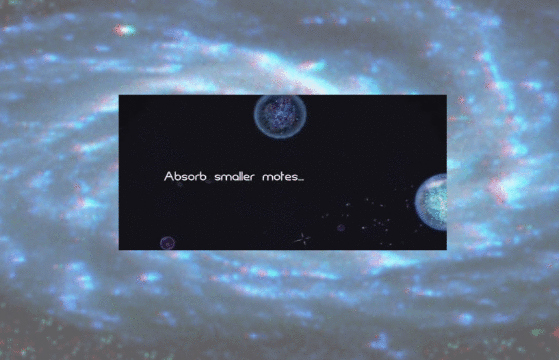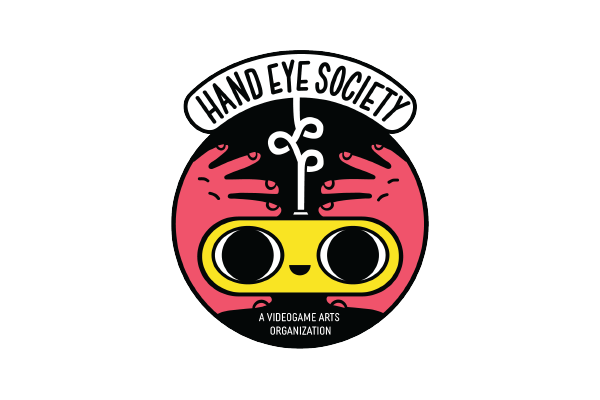
[Spotlight Game] Osmos
[Sorry for being tardy to the party folks. Your friendly neighbourhood game reviewer was pulled into doing coverage on recent international terrorist attacks. We hope everyone reading this and your loved ones are safe.]
Hand Eye members get a metric ton of perks, among them a free Toronto indie game every month. November’s game is Osmos by Hemisphere Games, a 2009 sleeper hit that snagged many awards and was Apple’s iPad game of 2010. Above all that, they’ve got Bart cred. You know you’ve made it when you have a Simpsons reference under your asteroid belt. Not a member yet? You can buy Osmos off their official website.
NEW DISCOUNT FOR MEMBERS: REAL ESCAPE GAME TORONTO
You might remember Real Escape Game Toronto’s spiffy cursed forest event from September. Now card-carrying Hand Eye members get 10 per cent off Real Escape Games! Discover the joy of of being trapped in a room by heading over to their locations near Kensington Market and Trinity-Bellwoods. Find out about becoming a Hand Eye Society member here.
OSMOS AND THE ART OF CONSERVATION

Cosmic flatulence was my downfall in Osmos. I made the mistake of thinking an ambient game about motes in space would let me breeze through levels, blissfully cruise controlling through a playable ASMR. Instead, I farted myself into killscreens and blazing suns and pulsating hell orbs.
I should’ve paid more attention to Osmos’ opener. The game kicks off with a quote from Isaac Newton: “For every action, there is an equal and opposite reaction.”
Levels expect you to remember that with each energy-crackling toot your mote expends. In Osmos, you play a single glowing orb surrounded by similar shimmering motes, hoping to absorb your brethren and become the biggest, no big deal. The zen drift I had anticipated was only really present after I’d eaten all the smaller motes. Until then, you have to conserve your movements. In a game where it’s eat or be eaten, you end up spending time calculating each hover; every move is projected so you don’t get digested.

The dance of celestial motes means Osmos isn’t an exact art. Zooming in and out is crucial to strategizing what’s best for short-term size boosts while near a sustainable crop of assimilated-to-be. The ability to slow or speed down time helps decision-making, but I play without patience. I want to zip through ambivalence, lulled into sure-fire victories by meditative instrumentals. I end up dashing myself off by hurtling straight into foes, fatted by my mistakes.
A big selling point for Osmos is being able to randomize any level. Everybody’s favourite term “endless replay value” will get thrown around, but new environments really quell frustrations. You’re blessed with being able to bound into the unknown when difficulties get stale.
Osmos’ accommodations for players like me are reminders that gameplay doesn’t have to hurt and challenging isn’t code for condemnation of abilities. Many games illicit anxiety, fear, or angry when they present players with tricky puzzles or terrifying visuals. Ragequit is what these games want you to reach for; they know you’ll come back anyway. You have no choice.

Osmos knows that unlike the cosmos, your existence is finite and your energy is replenishable, but not something that should be depleted willy nilly. You can expend a lot of energy trying to catch up with that dazzling colleague that’s taking the universe by storm, reach accomplishments on “time” (we all know time’s an illusion anyway right? Good), or fit expectations that would be detrimental to your health. In the end though, rushing what’ll happen eventually just makes you gas up the place. You burn out, and dying motes don’t dying stars make. Your death throes aren’t glimmery planetary nebulae warbling on stellar winds. You’re snuffed out with the fanfare of a killscreen. NASA doesn’t go paparazzi over your demise, and nothing glorious you’ve done becomes part of your legacy. In space, no one can hear you humblebrag.
Thankfully, Osmos knows us carbon-based life forms need all the grace we can get. You’ve got to become huge, but you need to do it in a sustainable way. Sometimes, levels will stick you in orbit with an impossibly huge, corporation-tier entity that you have no chances of bettering; that’s okay, as long as your personal objectives are met.
Osmos is a throwback that emphasizes a pretty recent movement to actively be involved with self-care. I can’t help but feel better as I adapt to the game’s rhythm, setting my own pace. My hands are busy with zooms to keep things in perspective. I’m always a click away from slowing things down to figure out my next move. The laws of conservation are at play with physics, as well as my little moteself’s mental health. There’s still motivation to play and a spirit of competition present, but they all take the backseat in our galactic voyage; gazing at collisions of colour, motion, and sound takes precedent over how far you get.





